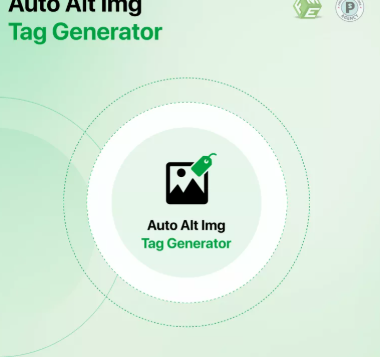
Boost SEO: 5 PrestaShop Meta Keywor
In 2025’s competitive eCommerce landscape, online visibility is everything. For merchants using PrestaShop, optimizing metadata—especially meta keywords—can be a quick yet powerful way to enhance SEO and increase organic traffic. Although meta keywords aren’t as heavily weighted by search engines as they once were, they still hold value in structured data strategies and internal site organization, particularly for large product catalogs.
Meta keywords, when thoughtfully generated and organized, help improve site relevance and maintain consistency across category and product pages. Automating this process using smart generators not only saves time but also helps your SEO align with mobile-first expectations. In this blog, we’ll uncover five actionable hacks for using PrestaShop meta keywords generator tools to give your SEO a meaningful boost.
1. Use Dynamic Fields for Keywords
Instead of manually entering the same static keywords across multiple products, use meta keywords generators that pull from dynamic product fields—like name, brand, category, or features. This strategy creates more tailored, search-relevant keywords for each item, enhancing its individual SEO potential while reducing duplication.
2. Leverage Bulk Generation Tools
For stores with hundreds of SKUs, manually managing meta keywords is nearly impossible. Bulk generation tools allow you to apply a rules-based system to assign keywords across products or categories. You can also exclude low-performing terms and include new trending search queries, keeping your content up-to-date and relevant without having to manage each product line-by-line.
3. Align Meta Keywords with Search Intent
A major mistake is stuffing keywords without considering actual user behavior. Instead, use keyword research tools to determine what your audience is searching for. Match these terms with your product descriptions and meta keywords. A good generator should allow you to import or sync this data, ensuring your meta tags are not only fast to produce but also aligned with searcher intent.
4. Don’t Overlook Upload-Based Product Pages
If your store includes customization options—for example, letting customers use a prestashop upload file feature—those product pages still need SEO attention. Add relevant meta keywords to these unique items to ensure they are indexed correctly. Pages that use prestashop customer upload modules are often dynamically generated and can be SEO blind spots if not manually optimized.
5. Review and Clean Meta Keywords Regularly
Automated tools make it easy to set and forget metadata, but performance should be reviewed regularly. Use analytics to see which keywords are driving traffic, and update underperforming tags. Many modern PrestaShop meta keyword generators offer reporting tools to help identify keyword gaps, duplication, or opportunities for better alignment with your content strategy.
Final Thoughts
While the role of meta keywords has evolved, they still serve as an organizational tool and can help support broader SEO strategies when used properly. For PrestaShop stores with a wide product range or complex features like file uploads and customization, automated meta keyword generation provides speed, consistency, and clarity. By using these five hacks, you can ensure your metadata not only supports discoverability but also aligns with today’s mobile-first SEO expectations.












